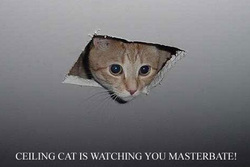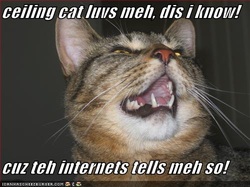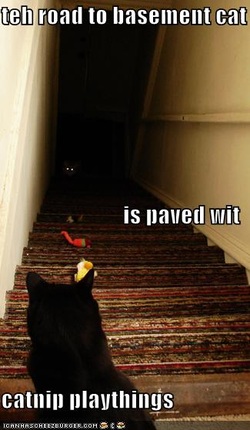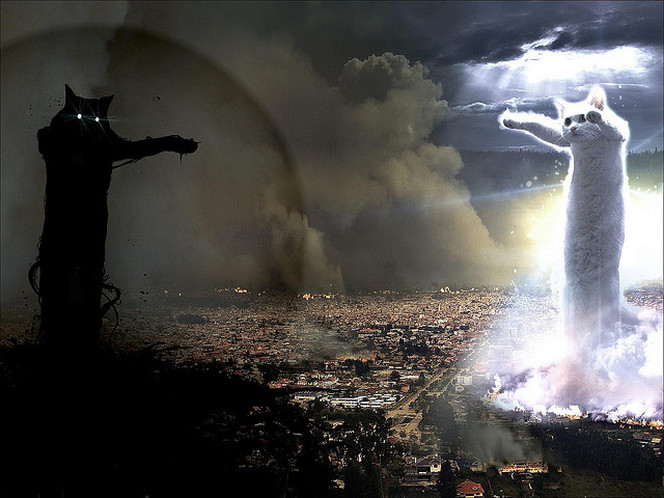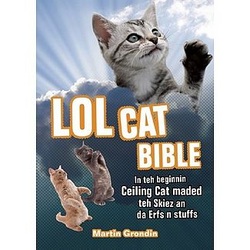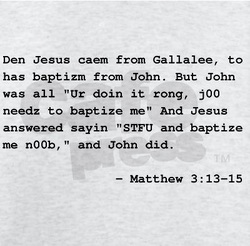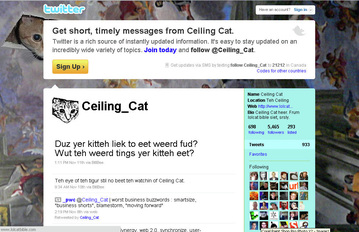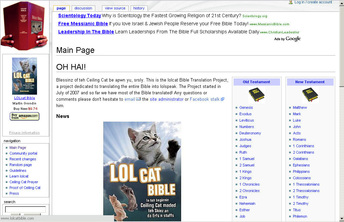The Bible Within the Social Network:
Contemporary Usage and Interactions on the Internet
Contemporary Usage and Interactions on the Internet
LOLCat Bible Translation Project and Book
The LOLCat Bible translation wiki, started as a humble internet meme on icanhascheezburger.com. Unlike the Brick Testament, the LOLCat meme relies heavily on anonymous contributions to a larger project. We can say then that the LOLCat Bible, is dependent on the internet for its very creation. The wiki format allows general participation, with guidelines, as well as revealing the editing process in the malleability of the text in the talk page. This is a result of the Wikipedia phenomenon and unique to the Internet. Though it uses a lot of internet vernacular it respects the structure of the cannon by being a verse for verse translation, similar to traditional paraphrases and Bible translation projects. This shows how the text remains authoritative even today.
The project itself has produced a hardcopy of the internet project, moving from an anonymous crowd-sourcing effort to a published hardcopy under the name of one individual, Martin Gronden. This version is less accessible to the general public. The product hides the participatory nature of the wiki that allows the project to succeed and freezes the malleability of the form into a hardcopy. As soon as the wiki changes there is a resulted conflict between the internet version and the material version. The internet version can continue to change with its participants while the book is victim to the interpretation problems as the Bible. The internet version continues to be a work in progress as the full Bible has yet to be fully translated.
Unlike the process of the transforming the Bible from a material object to the internet, the LOLCat reverses this trend.The internet vernacular that the LOLCat Bible uses includes internet humor, memes, terrible grammar found is “text speak”, as well as the participatory format which is unique to the medium. The LOLCat Bible thus follows the global Bible translation trends of the evangelical community.
Because, unlike the Brick Testament, there is no one single person or group spearheading the project the motivations remain oblique. The project allows individual interaction with the Biblical text, in a way that has never been possible. Every day lay people can go to the site and actively participate in the translation project. This is similar to when Facebook asked their users to participate in the translation of the site into Québecois French.
The LOLCat Bible Translation Project Evolution
The History of LOLcats [infographic]
Ceiling Cat vs Basement Cat Internet meme --> Wiki Translation Project --> Book
The History of LOLcats [infographic]
Ceiling Cat vs Basement Cat Internet meme --> Wiki Translation Project --> Book
